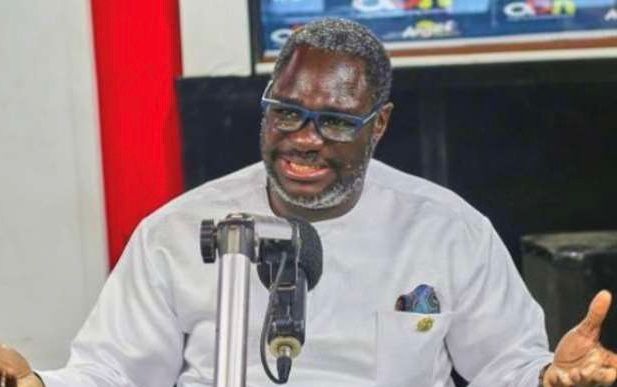The New Patriotic Party (NPP) finds itself embroiled in controversy surrounding the inflammatory remarks made by its Bono Regional Chairman, Kwame Baffoe Abronye, and the subsequent handling of the situation. Dr. Palgrave Boakye-Danquah, a prominent NPP member, has publicly criticized the party’s leadership for its inaction and perceived failure to discipline Abronye, arguing that their silence allowed the situation to escalate and tarnish the NPP’s image. This incident has sparked debate about the party’s commitment to its core values and raised concerns about the potential impact on its reputation.
Dr. Boakye-Danquah’s critique centers on the NPP’s delayed response to Abronye’s comments. He contends that the party should have acted swiftly and decisively to reprimand him, thereby preventing the situation from reaching its current level of notoriety. He emphasized that the NPP’s historical emphasis on “values, respect, and intellectuals” demands a higher standard of conduct from its members, and Abronye’s behavior directly contradicts these principles. The failure to address this promptly, according to Dr. Boakye-Danquah, undermines the party’s credibility and potentially alienates voters who value decorum and responsible political discourse.
The controversy surrounding Abronye stems from alleged derogatory remarks he made against the Inspector General of Police, COP Christian Tetteh Yohuno. These comments, deemed offensive and potentially inciting a breach of peace, led to Abronye’s arrest and subsequent court appearances. The charges against him include offensive conduct conducive to the breach of peace and publication of false news. He has already been remanded into custody twice by the Accra Circuit Court, highlighting the seriousness of the allegations. This case has placed the NPP in a difficult position, forcing it to balance its defense of free speech with the need to maintain law and order and uphold its own internal standards of conduct.
Beyond the internal party dynamics, Dr. Boakye-Danquah also expressed his reservations about the police’s handling of Abronye’s arrest. He criticized the use of a Black Maria vehicle to transport Abronye, deeming it an excessive display of force and potentially humiliating. This aspect of the case raises questions about the proportionality of the police response and whether it was influenced by Abronye’s political affiliation. While maintaining law and order is crucial, the optics of the arrest can significantly impact public perception and potentially fuel accusations of political bias within law enforcement.
The Abronye incident has broader implications for the NPP’s image and its efforts to maintain public trust. The party’s delayed response and the subsequent controversy surrounding the arrest have created a narrative of internal discord and a potential disregard for established norms of political discourse. This situation can damage the NPP’s reputation, particularly among voters who prioritize respectful and responsible political engagement. Moreover, it underscores the ongoing challenge faced by political parties in managing internal dissent and ensuring that the actions of individual members align with the party’s overall values and objectives.
Moving forward, the NPP faces the task of addressing the fallout from this incident and restoring public confidence in its commitment to its core values. This will require a careful balancing act between defending the right to free speech and holding members accountable for inflammatory rhetoric. The party’s leadership will need to demonstrate a clear commitment to disciplinary action when necessary, while also ensuring that due process is followed. Furthermore, addressing concerns about the police handling of the arrest is crucial to avoid further accusations of bias and maintain public trust in law enforcement. How the NPP navigates this situation will undoubtedly have a significant impact on its future political prospects and its ability to maintain its standing as a party of “values, respect, and intellectuals.”














